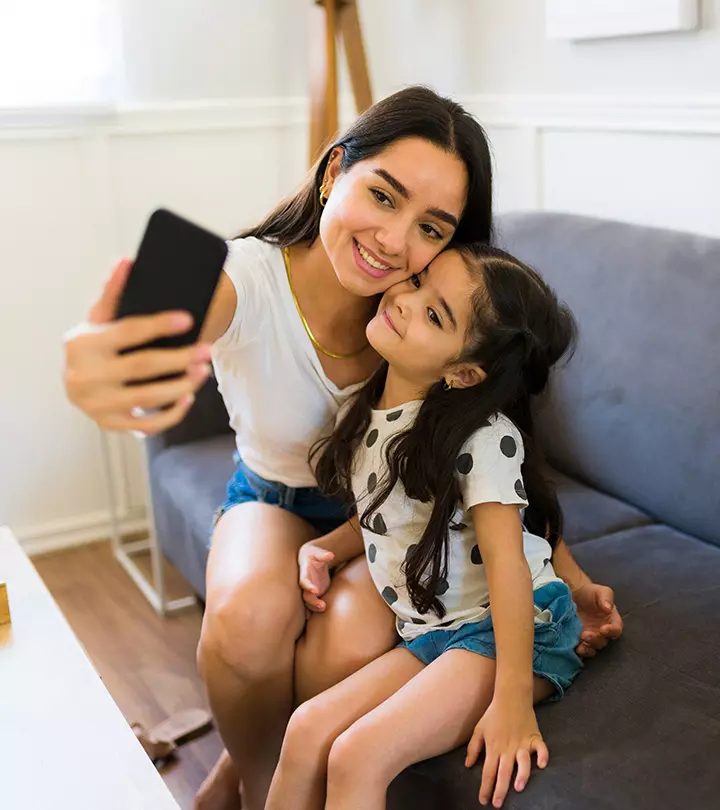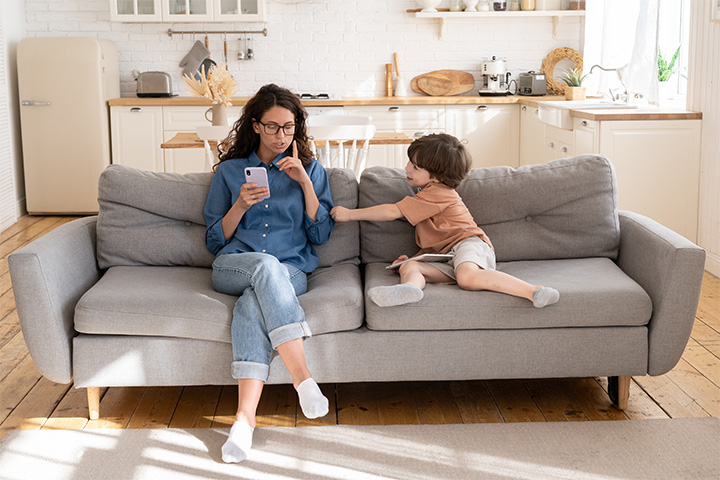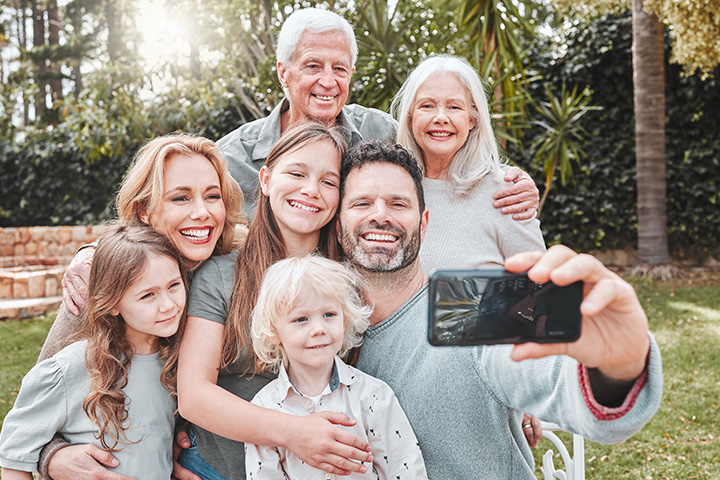
Image: Shutterstock
In our digitally-connected society, it has become commonplace for parents to enthusiastically share their children’s precious and happy moments online. However, it’s very important to pause and think twice before hitting that “post” button. By taking a moment to consider the potential consequences, we can prioritize our children’s privacy, safeguard their well-being, and promote responsible digital behavior. Let’s delve into the reasons why it’s essential to approach the sharing of our children’s photos online with thoughtfulness and caution. Read on to know more!
1. Privacy Concerns
Image: Shutterstock
In an era where personal information is increasingly vulnerable, protecting our children’s privacy should be a top priority. By sharing their photos online, we expose them to potential risks, such as identity theft, cyberbullying, and even online predators. Consider whether the benefits of sharing outweigh the potential risks and take steps to safeguard your child’s privacy.
2. Consent And Autonomy
Image: Shutterstock
Respecting our children’s autonomy extends beyond seeking their consent for sharing photos online. It also involves fostering open communication and dialogue about their online presence. By involving them in discussions about privacy, boundaries, and responsible digital behavior, we equip them with the knowledge and skills to navigate the online world safely and responsibly. This not only protects their privacy but also nurtures their sense of autonomy and empowers them to make informed decisions about their digital footprint.
3. Long-Term Implications
Image: Shutterstock
The internet is forever, and what may seem harmless today could have unintended consequences in the future. Once a photo is posted online, it can be challenging to control who has access to it and how it may be used. Consider how your child may feel about their digital footprint when they are older. Respect their right to shape their own online identity as they grow up.
4. Impact On Relationships
Image: Shutterstock
Sharing photos of your children online may inadvertently strain relationships with family and friends. Some individuals may have different views on privacy and may not feel comfortable having their children’s photos shared online. Before posting, it’s essential to consider the feelings and preferences of those closest to you and to respect their boundaries.
5. Exploitation And Misuse
Image: Shutterstock
Unfortunately, the internet is not always a safe space. Posting photos of our children can make them susceptible to exploitation and misuse. Photos can be manipulated, downloaded, or shared without our knowledge or consent. It’s crucial to be mindful of the potential risks and take steps to mitigate them.
6. Online Presence And Personal Branding
Image: Shutterstock
In an increasingly digital world, our children’s online presence can impact their future opportunities. Employers, college admissions officers, and even potential romantic partners may conduct online searches to learn more about individuals. Being conscious of the information and images associated with your child’s online identity can help shape a positive personal brand.
7. Striking A Balance
Image: Shutterstock
Finding a balance between sharing special moments and protecting our children’s privacy is key. Consider alternative ways to share with a smaller, more private audience, such as encrypted messaging apps or secure photo-sharing platforms. This way, you can enjoy the benefits of sharing while minimizing the potential risks.
8. Setting A Positive Example
Image: Shutterstock
As parents, we play a significant role in shaping our children’s digital behavior and attitudes. By being mindful of what we post online, we can set a positive example and instill responsible online habits in our children. They learn from our actions, and practicing responsible sharing can help them navigate the digital landscape in a safe and respectful manner.
9. Consent From Others
Image: Shutterstock
When sharing photos of your children online, it’s essential to consider the consent of other individuals who may be included in the image. This includes family members, friends, or other children. Respect their privacy and obtain consent before posting their photos. By doing so, you demonstrate respect for their boundaries and maintain positive relationships with those involved.
10. Cyberbullying And Online Harassment
Image: Shutterstock
Posting photos of your children online exposes them to the risk of cyberbullying and online harassment. As they grow older, they may encounter negative comments or even have their photos used inappropriately. Protecting your child from such harm requires careful consideration of what you share and with whom. Educate yourself on privacy settings and ensure your social media accounts have appropriate security measures in place.
Imagine the virtual world as a vast gallery, where we have the power to curate and display moments of our children’s lives. Before you hang their photos on the digital walls, take a moment to reflect on the potential ripple effects. Consider the importance of preserving their privacy, nurturing their autonomy, and safeguarding their well-being. By carefully choosing what to share, setting clear boundaries, and engaging in open conversations, you can craft a beautiful online tapestry that protects their innocence and empowers their digital journey. Remember, in this ever-connected realm, our role as guardians is to guide and shape their online presence with love and care. Let us know in the comments what factors you consider before posting your children’s pictures online!






















